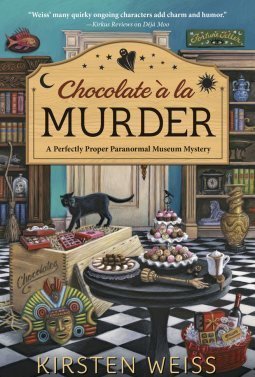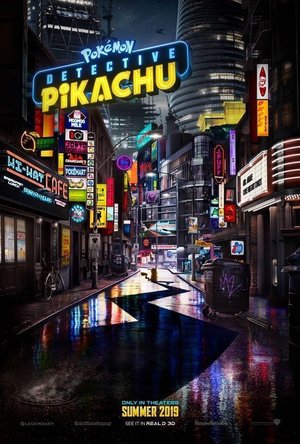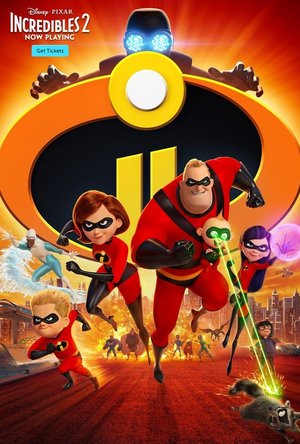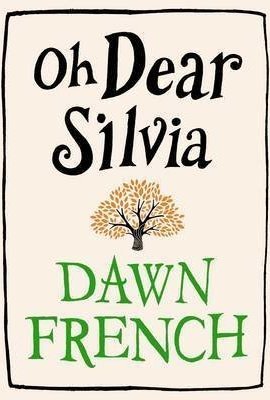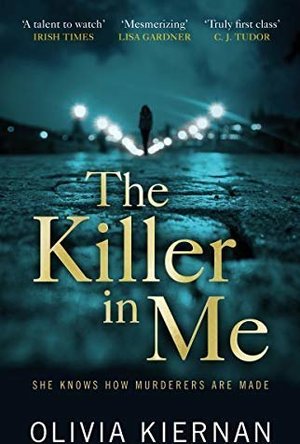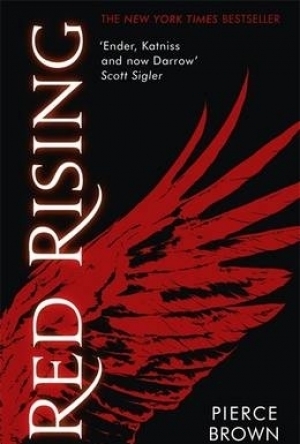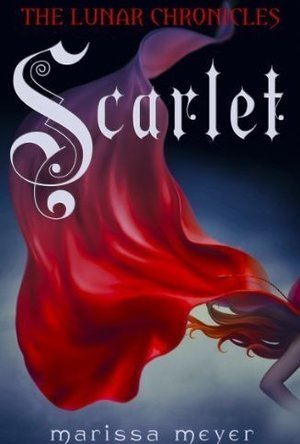Search
Search results
graveyardgremlin (7194 KP) rated What's a Ghoul to Do? (Ghost Hunter Mystery, #1) in Books
Feb 15, 2019
I was really excited to read this book because I love the Psychic Eye Mysteries Victoria Laurie also writes. I'm not a picky reader, but I'm sorry, this didn't quite do it for me and I ended up very disappointed.
I was hoping they'd be different from the P. E. Mysteries, but still have similar elements of style. Even though I like romance, this book was supposed to be a mystery, hence A Ghost Hunter Mystery on the cover, but the mystery is thrown in around the rather awkwardly written romance between M. J. and Steven. I did think the first chapter was good because I thought M. J. would be different than Abby and more antisocial and a bit cranky (at least that's what I got from the first chapter), but then she ended up giggling throughout the whole book (seriously). What I like about the P. E. Mysteries are that they are fresh, fun, very well written, and the characters are (for the most part) believable. Not to mention, I got extremely tired of reading Steven's choppy English ('what do you say...?', 'Yes, that too', etc.), which made the dialogue even choppier and flatter than it already was, not to mention irritating as all get out. I don't know why V. L. couldn't have made him more fluent in English, especially since he was so well educated, it would only have been a small tweak in the plot. But I've noticed Ms. Laurie has a bit of a redundancy problem in her books, even if I do love Abby Cooper, Psychic Eye, which has the 'liar, liar, pants on fire' repetition, where when someone lies, Abby's 'inborn lie detector' goes off with that chant.
Overall, the dialogue was choppy, the plot and mystery were subpar, the characters were clichés and unbelievable (Doc was a nice addition though), and the whole book badly needed editing. I would not recommend this, although I'm sure many (as seen in the numerous four and five star ratings) would like this as it's not completely horrible; it's just not very fresh even if the subject is interesting. I haven't quite made up my mind if I'll pick up the next in the series.
I was hoping they'd be different from the P. E. Mysteries, but still have similar elements of style. Even though I like romance, this book was supposed to be a mystery, hence A Ghost Hunter Mystery on the cover, but the mystery is thrown in around the rather awkwardly written romance between M. J. and Steven. I did think the first chapter was good because I thought M. J. would be different than Abby and more antisocial and a bit cranky (at least that's what I got from the first chapter), but then she ended up giggling throughout the whole book (seriously). What I like about the P. E. Mysteries are that they are fresh, fun, very well written, and the characters are (for the most part) believable. Not to mention, I got extremely tired of reading Steven's choppy English ('what do you say...?', 'Yes, that too', etc.), which made the dialogue even choppier and flatter than it already was, not to mention irritating as all get out. I don't know why V. L. couldn't have made him more fluent in English, especially since he was so well educated, it would only have been a small tweak in the plot. But I've noticed Ms. Laurie has a bit of a redundancy problem in her books, even if I do love Abby Cooper, Psychic Eye, which has the 'liar, liar, pants on fire' repetition, where when someone lies, Abby's 'inborn lie detector' goes off with that chant.
Overall, the dialogue was choppy, the plot and mystery were subpar, the characters were clichés and unbelievable (Doc was a nice addition though), and the whole book badly needed editing. I would not recommend this, although I'm sure many (as seen in the numerous four and five star ratings) would like this as it's not completely horrible; it's just not very fresh even if the subject is interesting. I haven't quite made up my mind if I'll pick up the next in the series.
Midge (525 KP) rated Chocolate a la Murder in Books
Mar 25, 2019
A Delightful Paranormal Mystery!
I jumped at the chance to read this delightful little mystery as I have come to adore cozy novels in recent months. This is the fourth book in the ‘A Perfectly Proper Paranormal Museum’ series by Kirsten Weiss, the first book being ‘The Perfectly Proper Paranormal Museum,’ followed by ‘Pressed to Death’ and ‘Deja Moo.’
The setting for the story is a town called San Benedetto in the California wine country. In “Chocolate a la Murder,” owner, Maddie Kosloski, of the Perfectly Proper Paranormal Museum, is preparing for The Wine and Chocolate Days Festival in San Benedetto. Maddie has sweet dreams about her new Magic of Chocolate exhibit. Her latest attraction is a haunted Mexican whisk called a molinillo that rattles if someone lies.
When Maddie visits the town's new boutique chocolate shop, she finds one of the owners dead and covered in melted cocoa. Maddie's determined to catch the killer, and she soon uncovers deadly dealings in the world of artisan chocolate. But the deception surrounding those dealings are enough to make the molinillo rattle all night. Will Maddie have to temper her passion for sleuthing before a killer makes her their next target?
Although I haven’t any read of the first three books of the series, Kirsten Weiss, provides plenty of back-stories, so “Chocolate a la Murder” works well as a stand-alone novel. Written in the first person, the characters in this novel were a real laugh and I especially liked Maddie’s feistiness. I even found myself asking the same questions and thinking along the same lines as Maddie when trying to work out the identity of the perpetrator. I really enjoyed the easy-to-read writing style, the plot and the pace of the book. The paranormal element helped to add intrigue to the tale, whilst making it a little different to some of the other books in the genre.
All in all, “Chocolate a la Murder” is a lighthearted, lovely read, that combines mystery, thrills and murder and mayhem and I'm looking forward to reading the first three books of the series.
[Thanks to #NetGalley and Midnight Ink Publishing for the free ARC of #ChocolateAlaMurder in exchange for an honest review.]
The setting for the story is a town called San Benedetto in the California wine country. In “Chocolate a la Murder,” owner, Maddie Kosloski, of the Perfectly Proper Paranormal Museum, is preparing for The Wine and Chocolate Days Festival in San Benedetto. Maddie has sweet dreams about her new Magic of Chocolate exhibit. Her latest attraction is a haunted Mexican whisk called a molinillo that rattles if someone lies.
When Maddie visits the town's new boutique chocolate shop, she finds one of the owners dead and covered in melted cocoa. Maddie's determined to catch the killer, and she soon uncovers deadly dealings in the world of artisan chocolate. But the deception surrounding those dealings are enough to make the molinillo rattle all night. Will Maddie have to temper her passion for sleuthing before a killer makes her their next target?
Although I haven’t any read of the first three books of the series, Kirsten Weiss, provides plenty of back-stories, so “Chocolate a la Murder” works well as a stand-alone novel. Written in the first person, the characters in this novel were a real laugh and I especially liked Maddie’s feistiness. I even found myself asking the same questions and thinking along the same lines as Maddie when trying to work out the identity of the perpetrator. I really enjoyed the easy-to-read writing style, the plot and the pace of the book. The paranormal element helped to add intrigue to the tale, whilst making it a little different to some of the other books in the genre.
All in all, “Chocolate a la Murder” is a lighthearted, lovely read, that combines mystery, thrills and murder and mayhem and I'm looking forward to reading the first three books of the series.
[Thanks to #NetGalley and Midnight Ink Publishing for the free ARC of #ChocolateAlaMurder in exchange for an honest review.]
Neon's Nerd Nexus (360 KP) rated Pokémon: Detective Pikachu (2019) in Movies
May 13, 2019
Catch it or run away?
#detectivepikachu is more Pokemeh than #Pokemon, sure the ideas are there but the execution isn't leaving us with a movie that's simply just ok. I was really #hyped for this movie, I loved the neon flair, underground, mature & almost seedy look it pitched us in the trailer & very much to its credit all that is still there VISUALLY but in almost every other aspect it sadly fails. Ok so this film is #gorgeous, pokemon feel like living breathing #creatures with tremendous cgi texture detail almost making some of the feel like practical effect rather than computer imagery. Pokemon also interact with not just the world/scenery but with the actors too flawlessly keeping the immersion grounded/realistic just like #bumblebee did. World wise it nails it the city #feels so alive & lived in by both humans & pokemon with the grimy smokey alleyways, radiant forest areas & the neon glows of street signs adding character & dimension as they glisten beautifully off the characters fur & concrete. Its all very #bladerunner/#ghostintheshell #inspired & overflows with human technological progression. Accompanying the visuals is a simply awesome soundtrack that invokes a sense of wonder & #fantasy esc dream states only adding to its world building. Here then lies my problem we have the perfect world & these incredible creatures that inhabit it so why dont we spend more time with them exploring not only the world but the #relationship/bond between us & pokemon & how we cope with sharing the world together. Instead we are forced to follow such a dull, bland, paint by numbers plot with a twist thats so frustratingly obvious within the first 15 minutes that I was annoyed it took so long to reveal it. Adding to its tedium & dullness are the human actors who (aside from #Kenwatanabe & #ryanreynolds who carry the film) are unlikable, soulless, emotionless drones that seem to only be there to explain/advance the mundane plot. Detective #pikachu is one extremely well marketed/over #hyped missed opportunity & I cant help but feel if they'd focused more on the things we were all there to see (the pokemon) it might of had a bit more #heart. #nintendo #pokeball #pokemongo #cute #anime #manga
LeftSideCut (3776 KP) rated Avengers: Endgame (2019) in Movies
May 14, 2019 (Updated May 14, 2019)
A truly incredible end to the MCU Infinity Saga
SPOLIER FREE REVIEW
Avengers: Endgame is finally here after the shocking events of Infinity War.
First and foremost, a huge amount of respect is owed to the Russo brothers for managing to juggle so many characters across these two films (and Civil War) to a hugely satisfying degree.
But with a smaller cast to manage this time around, this is a film that is able to focus more on the original six Avengers from 2012.
The majority of the film is quite dialogue heavy, as the film focuses on a fun time travel plot, that takes us through a nostalgia filled trip through some of the past MCU films, filled with cameos galore.
The usual mix of thrilling set pieces, emotional beats (that scene set in 1970?), and comedy land just as well as they always have done, with Paul Rudd and Chris Hemsworth delivering most of the humour.
Robert Downey Jr and Scarlett Johansson shine as Tony Stark and Black Widow, as they always do, and I also enjoyed the amount of time they spent with characters like Hawkeye and Nebula, characters who would usually be considered secondary.
A concern I had going in was that they might use the recently added Captain Marvel, but thankfully isn't the case. She is used sparingly, and therefore effectively.
The only real gripe I have with Endgame, is that Thanos is forced more into a backseat role, after his incredible character arc throughout Infinity War, but is understandable, as mentioned above, this film is all about the original 6, and that's where the main focus lies. Saying that though, I did feel pretty unsatisfied with how they concluded the story arc for Black Widow...
As the movie approaches the inevitable big showdown, the ensuing battle is nothing short of thrilling, a pure scene of unobstructed comic book joy, that will have any Marvel fan trying not to shout at the screen.
All in all, it's a phenomenal ending to this chapter of the MCU, and I can't wait for what comes next (especially now that Marvel Studios have the Fox properties back)
Avengers: Endgame is finally here after the shocking events of Infinity War.
First and foremost, a huge amount of respect is owed to the Russo brothers for managing to juggle so many characters across these two films (and Civil War) to a hugely satisfying degree.
But with a smaller cast to manage this time around, this is a film that is able to focus more on the original six Avengers from 2012.
The majority of the film is quite dialogue heavy, as the film focuses on a fun time travel plot, that takes us through a nostalgia filled trip through some of the past MCU films, filled with cameos galore.
The usual mix of thrilling set pieces, emotional beats (that scene set in 1970?), and comedy land just as well as they always have done, with Paul Rudd and Chris Hemsworth delivering most of the humour.
Robert Downey Jr and Scarlett Johansson shine as Tony Stark and Black Widow, as they always do, and I also enjoyed the amount of time they spent with characters like Hawkeye and Nebula, characters who would usually be considered secondary.
A concern I had going in was that they might use the recently added Captain Marvel, but thankfully isn't the case. She is used sparingly, and therefore effectively.
The only real gripe I have with Endgame, is that Thanos is forced more into a backseat role, after his incredible character arc throughout Infinity War, but is understandable, as mentioned above, this film is all about the original 6, and that's where the main focus lies. Saying that though, I did feel pretty unsatisfied with how they concluded the story arc for Black Widow...
As the movie approaches the inevitable big showdown, the ensuing battle is nothing short of thrilling, a pure scene of unobstructed comic book joy, that will have any Marvel fan trying not to shout at the screen.
All in all, it's a phenomenal ending to this chapter of the MCU, and I can't wait for what comes next (especially now that Marvel Studios have the Fox properties back)
Neon's Nerd Nexus (360 KP) rated The Incredibles 2 (2018) in Movies
May 14, 2019
Super
#pixar #disney #incredibles2 is an exceptional #sequel with a much more mature tone & flawless #animation. After doing a double bill of the incredibles films today in #4k I found myself awe of the technical achievement on show. This #film is stunning & I mean visual #perfection, particle effects are complex & mesmerising, #eyes house tiny red veins, faces blush & cloths contain intricate stitching too with character animation also being fluid & #natural. Subject matter is dark this time around & deals with extremely #adult themes, parents might want to think twice before taking kids to see this one as id say almost 80% of the film is a heavily dialog driven #drama. I wont lie at times its incredibly intense, heavy going & hard work but its also always fascinating & higly rewarding housing many very real world/mature themes with great complexity & depth. With things getting very serious the film does break things up every now & again with just enough huge scale top notch memorable action set pieces & slick comedy to let your brain rest briefly (however I found most #Kids in my screening were getting restless & bored by then so parents may want to think twice before taking the #family). Themes of death, jealousy, trust, lies, parent roll reversal, balancing home #life & family with work, teaching kids to be themselves while also making sure they obey the law & fit in, as well as metaphors about technology enslaving us all & how superhero films are only pushed on us to distract us from real world problems & belief someone else will solve all our problems for us (this is not only refreshing but expertly handled & over flowing with intelligence giving the #film a more human, realistic & relevant tone). Voice work is simply top notch with #bobodenkirk being the most interesting & going the extra mile. Score & #sound design are also on point & at times I swear I thought #jackjack was a #kid in my screening running around behind me. The last 20mins felt a tad rushed but with such likeable & well fleshed out characters & a more mature story #incredibles 2 might just be the most intelligent & #fun #superhero film or the year. #odeon #odeonlimitless #beautiful #hero #super
Kaz (232 KP) rated Oh Dear Silvia in Books
May 15, 2019
What the 'blurb' says:
'Silvia Shute lies in a hospital bed. Family and friends are at her side, each thinking they know the real Silvia. But do they? For Silvia hides a secret. And as her visitors gather, so the truth about Silvia is slowly revealed...'
My Thoughts:
I had never read anything by Dawn French (for anyone who doesn't know who she is, she is a famous British comedian, best known as one half of comedy duo French and Saunders) before reading 'Oh Dear Silvia' and to be honest, I had low expectations of it.
It's not that I didn't like Dawn French, I think she is a very funny woman. However with there being a current trend of celebrities writing cheesy, badly written chick-lit and selling copies because of their names alone, I thought this was going to be the same. Thankfully, I was wrong.
The writing is this book is very good. The descriptions are, at times, beautiful and each of the characters are believable and diverse. Even though the main character doesn't utter a single word throughout the book, I still felt that I knew her because of the other characters and their complex relationships with each other. One of the characters, Silvia's sister Jo, for me felt like a bit of cartoon character at the beginning. There is a scene involving her in the book, which I felt didn't fit in with the tone of the story, but I still laughed at it though. As the book progressed though, I did warm to her.
The pace of the book was slow, but I felt that this was effective, because it allowed the story to unfold at a natural pace. Towards the end, however, one of the more sinister elements of the plot, was concluded slightly quicker and in more lighthearted way, than it should have been. In my opinion, this could have been dealt with better and with more impact.
Overall, I'm glad that I read this book because on the whole, it's written with sensitivity and subtle wit. I look forward to reading more of Dawn French's novels in the future.
My Rating ****
'Silvia Shute lies in a hospital bed. Family and friends are at her side, each thinking they know the real Silvia. But do they? For Silvia hides a secret. And as her visitors gather, so the truth about Silvia is slowly revealed...'
My Thoughts:
I had never read anything by Dawn French (for anyone who doesn't know who she is, she is a famous British comedian, best known as one half of comedy duo French and Saunders) before reading 'Oh Dear Silvia' and to be honest, I had low expectations of it.
It's not that I didn't like Dawn French, I think she is a very funny woman. However with there being a current trend of celebrities writing cheesy, badly written chick-lit and selling copies because of their names alone, I thought this was going to be the same. Thankfully, I was wrong.
The writing is this book is very good. The descriptions are, at times, beautiful and each of the characters are believable and diverse. Even though the main character doesn't utter a single word throughout the book, I still felt that I knew her because of the other characters and their complex relationships with each other. One of the characters, Silvia's sister Jo, for me felt like a bit of cartoon character at the beginning. There is a scene involving her in the book, which I felt didn't fit in with the tone of the story, but I still laughed at it though. As the book progressed though, I did warm to her.
The pace of the book was slow, but I felt that this was effective, because it allowed the story to unfold at a natural pace. Towards the end, however, one of the more sinister elements of the plot, was concluded slightly quicker and in more lighthearted way, than it should have been. In my opinion, this could have been dealt with better and with more impact.
Overall, I'm glad that I read this book because on the whole, it's written with sensitivity and subtle wit. I look forward to reading more of Dawn French's novels in the future.
My Rating ****
Billie Wichkan (118 KP) rated The Killer in Me (Frankie Sheehan, #2) in Books
May 22, 2019
Detective Chief Superintendent Frankie Sheehan does not wish to linger on the grisly scene before her eyes. Two mutilated corpses. In a church. In Clontarf. Her profiling background screams one fact: this is just the beginning of a sickening message.
Meanwhile, a 17-year-old case is playing out on a TV documentary, the convicted professing his innocence and historical police errors being exposed daily in the media. Frankie's superior, commissioner Donna Hegarty, makes no bones about who she expects to clean things up - both in terms of past mishandlings and the present murders.
But not everyone working the cases wants the truth to come out. And the corridors of power have their own vested interest. Soon Frankie pinpoints just what is making her so nervous: the fact that anyone could be the next victim when justice is the killer.
The Killer In Me is a fast-paced thriller in which lies are safer than the truth, the past is never far from the present, and the ability to kill could well, it seems, live in everyone.
I would like to thank Netgalley and Quercus Books for an advance copy of The Killer in Me.
The Killer in Me is the second novel to feature Dublin based Detective Chief Superintendent Frankie Sheehan of An Garda Síochánas Bureau for Serious Crime.
I could use a lot of words to describe this book and how much I liked it, but I want to summarize it in few words: it's amazing and gripping.
This novel is fast paced and full of twists and turns which just ramp the suspense level up.
I was gripped from the start and read this book in one go. It is really well written and very cleverly thought out.
Dark and intense, this story is told wonderfully well.
I found the characters very interesting and also full of depth.
Lot of red herrings about to keep you guessing all the way to the end.
Highly Recommend.
I would like to thank Netgalley and Quercus Books for an advance copy of The Killer in Me; this is my honest voluntary review.
Meanwhile, a 17-year-old case is playing out on a TV documentary, the convicted professing his innocence and historical police errors being exposed daily in the media. Frankie's superior, commissioner Donna Hegarty, makes no bones about who she expects to clean things up - both in terms of past mishandlings and the present murders.
But not everyone working the cases wants the truth to come out. And the corridors of power have their own vested interest. Soon Frankie pinpoints just what is making her so nervous: the fact that anyone could be the next victim when justice is the killer.
The Killer In Me is a fast-paced thriller in which lies are safer than the truth, the past is never far from the present, and the ability to kill could well, it seems, live in everyone.
I would like to thank Netgalley and Quercus Books for an advance copy of The Killer in Me.
The Killer in Me is the second novel to feature Dublin based Detective Chief Superintendent Frankie Sheehan of An Garda Síochánas Bureau for Serious Crime.
I could use a lot of words to describe this book and how much I liked it, but I want to summarize it in few words: it's amazing and gripping.
This novel is fast paced and full of twists and turns which just ramp the suspense level up.
I was gripped from the start and read this book in one go. It is really well written and very cleverly thought out.
Dark and intense, this story is told wonderfully well.
I found the characters very interesting and also full of depth.
Lot of red herrings about to keep you guessing all the way to the end.
Highly Recommend.
I would like to thank Netgalley and Quercus Books for an advance copy of The Killer in Me; this is my honest voluntary review.
I think I'm becoming quite the Ali Smith fan
I absolutely loved this book. I'm becoming quite a fan, and I think I need to read more of Ali Smith's back catalogue. This novel is witty, current, heartfelt with a full-on family! Ali Smith has a lot of political dross and general misery in the news lately to find material from (unfortunately!), but she does so much good WITH it. In the blurb it says about this book that it's "The season that teaches us survival", and the characters in this certainly do just that.
There is a lot of jumping around in time: things that happened in the past that have a bearing on the presents of the characters, and the occasional toe-dip into their futures too. A lot can happen in the few days over Christmas. We're never quite sure if the mother in this is losing her mind or not (it would be a safe bet to say "yes", but then her son isn't particularly stable during the time period that the book is set in either).
I love the wittiness of Smith's writing. For the Brits reading this, you'll probably get this one straight away, but for everyone else, she's referring to Boris Johnson our current (2018) Foreign Secretary (although I think this would probably apply to any politician, regardless of political party or country! Call me a cynic!): "The man who wrote the dictionary. Johnson. Not Boris. The opposite of Boris. A man interested in the meanings of words, not one whose interests leave words meaningless."
And just a quote to finish with. One that represents both the season that the book is set in, and also one of the main story arcs:
"Cymbeline, he says. The one about poison, mess, bitterness, then the balance coming back. The lies revealed. The losses compensated".
Ali Smiths style can take a bit of getting used to (you'll probably have noticed the lack of speech marks - that's not a mistake on my part, by the way), but her books are so worth the effort.
There is a lot of jumping around in time: things that happened in the past that have a bearing on the presents of the characters, and the occasional toe-dip into their futures too. A lot can happen in the few days over Christmas. We're never quite sure if the mother in this is losing her mind or not (it would be a safe bet to say "yes", but then her son isn't particularly stable during the time period that the book is set in either).
I love the wittiness of Smith's writing. For the Brits reading this, you'll probably get this one straight away, but for everyone else, she's referring to Boris Johnson our current (2018) Foreign Secretary (although I think this would probably apply to any politician, regardless of political party or country! Call me a cynic!): "The man who wrote the dictionary. Johnson. Not Boris. The opposite of Boris. A man interested in the meanings of words, not one whose interests leave words meaningless."
And just a quote to finish with. One that represents both the season that the book is set in, and also one of the main story arcs:
"Cymbeline, he says. The one about poison, mess, bitterness, then the balance coming back. The lies revealed. The losses compensated".
Ali Smiths style can take a bit of getting used to (you'll probably have noticed the lack of speech marks - that's not a mistake on my part, by the way), but her books are so worth the effort.
Kyera (8 KP) rated Red Rising in Books
Feb 1, 2018
I did not immediately fall in love with Red Rising. Rather the storyline slowly built over the first third of the book and then I found myself wanting to know what happens next. Darrows life as a Red is important to experience so you know what made him the man he is today, but didnt captivate my attention.
The world that he knows is a lie. He is not the sacrificing pioneer his society led him to believe, but rather little more than a slave. His entire outlook and being is altered so that he may fight his way to the top, and maybe change the Society.
Darrow is filled with love for his people and his family, but does not understand the world at large. He must learn, and quickly, to fit into this new world without losing himself in the process. Each character in the book is unique and contributes differently to the story. Some force Darrow to question his resolve to the cause, others show him a different side of humanity, while a rare few make him wonder if all Golds are bad.
Mustang and Sevro are probably my two favourite supporting characters. Mustang is smart, strategic and caring even though she was not raised to be that way. Her father is the leader on Mars, so she led a sheltered but harsh childhood. Sevro is a strange human, but he grows on you over the novel and his dark humour is infectious.
The most fascinating parts of the book were when he was attending the Institute and proving that he had what it took to become a Peerless Scarred. It was almost a study on the absolute lowest that humanity can sink to, the darkness they can embrace when there are no consequences to their actions and the leaders that can rise despite it. It was disgusting and horrifying at times, but you cant put it down.
Relationships form and are torn asunder, lies build and fester, and humanity sinks lower. The book was well written and I kept picking it up, needing to know what happened next, despite the darkness. I would recommend it to older young adult/teen readers, or adults, who enjoy science fiction novels.
The world that he knows is a lie. He is not the sacrificing pioneer his society led him to believe, but rather little more than a slave. His entire outlook and being is altered so that he may fight his way to the top, and maybe change the Society.
Darrow is filled with love for his people and his family, but does not understand the world at large. He must learn, and quickly, to fit into this new world without losing himself in the process. Each character in the book is unique and contributes differently to the story. Some force Darrow to question his resolve to the cause, others show him a different side of humanity, while a rare few make him wonder if all Golds are bad.
Mustang and Sevro are probably my two favourite supporting characters. Mustang is smart, strategic and caring even though she was not raised to be that way. Her father is the leader on Mars, so she led a sheltered but harsh childhood. Sevro is a strange human, but he grows on you over the novel and his dark humour is infectious.
The most fascinating parts of the book were when he was attending the Institute and proving that he had what it took to become a Peerless Scarred. It was almost a study on the absolute lowest that humanity can sink to, the darkness they can embrace when there are no consequences to their actions and the leaders that can rise despite it. It was disgusting and horrifying at times, but you cant put it down.
Relationships form and are torn asunder, lies build and fester, and humanity sinks lower. The book was well written and I kept picking it up, needing to know what happened next, despite the darkness. I would recommend it to older young adult/teen readers, or adults, who enjoy science fiction novels.
postapocalypticplayground (27 KP) rated Scarlet (The Lunar Chronicles, #2) in Books
Mar 15, 2018
Awesome continuation of the series
I’m so happy to be back in the world of the Lunar Chronicles! Scarlet, is Marissa Meyer’s take on Red Riding Hood, big bad wolf and grandma included. As with Cinder, Scarlet is a whirlwind of a story, straight into the good stuff and the story blends seamlessly with the continuation of Cinder’s overarching story line. Scarlet is a girl on a mission to rescue her Grandmother with Wolf (the big bad fighter) on her side. Outside of New Beijing, Scarlet’s story is set in a future France, which seems very undamaged by the wars, it has a very rustic feel, with Scarlet and her Grandmother enjoying a simple farming life. But Grandma, what big secrets you have! The collision of her grandmothers disappearance and the entrance of Wolf is played to perfection and their journey to Paris is both exciting and full of anxious moments. Scarlet is a fantastic character and you can completely understand, through the brief glimpses of her father, why she gives up everthing to take the journey to Paris. Whilst she wants to appear worldly, she is also wonderfully niaive at times, very much wearing her heart on her sleeve. I also loved the nuggets of information about hers and Cinder’s past and how the lines become blurred at times as the secrets and lies unfurl.
The action is frequent with huge set pieces which played out cinematically in my mind as I was reading. It’s quite an emotional one at times too, Kai’s dispair, Cinder’s desperation, Wolf’s inner turmoil and a bit of an insight into Levana left me quite breathless by the end.
My favourite thing at this stage, is how there is still so many secrets to be revealed. With 2 more books in the series to go it’s clear that each of the next characters will have some connection to what happened to Cinder as a child and how we reach present day, in story terms, I can’t wait to pick up Cress and see where the story goes next!
The action is frequent with huge set pieces which played out cinematically in my mind as I was reading. It’s quite an emotional one at times too, Kai’s dispair, Cinder’s desperation, Wolf’s inner turmoil and a bit of an insight into Levana left me quite breathless by the end.
My favourite thing at this stage, is how there is still so many secrets to be revealed. With 2 more books in the series to go it’s clear that each of the next characters will have some connection to what happened to Cinder as a child and how we reach present day, in story terms, I can’t wait to pick up Cress and see where the story goes next!

